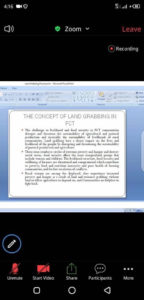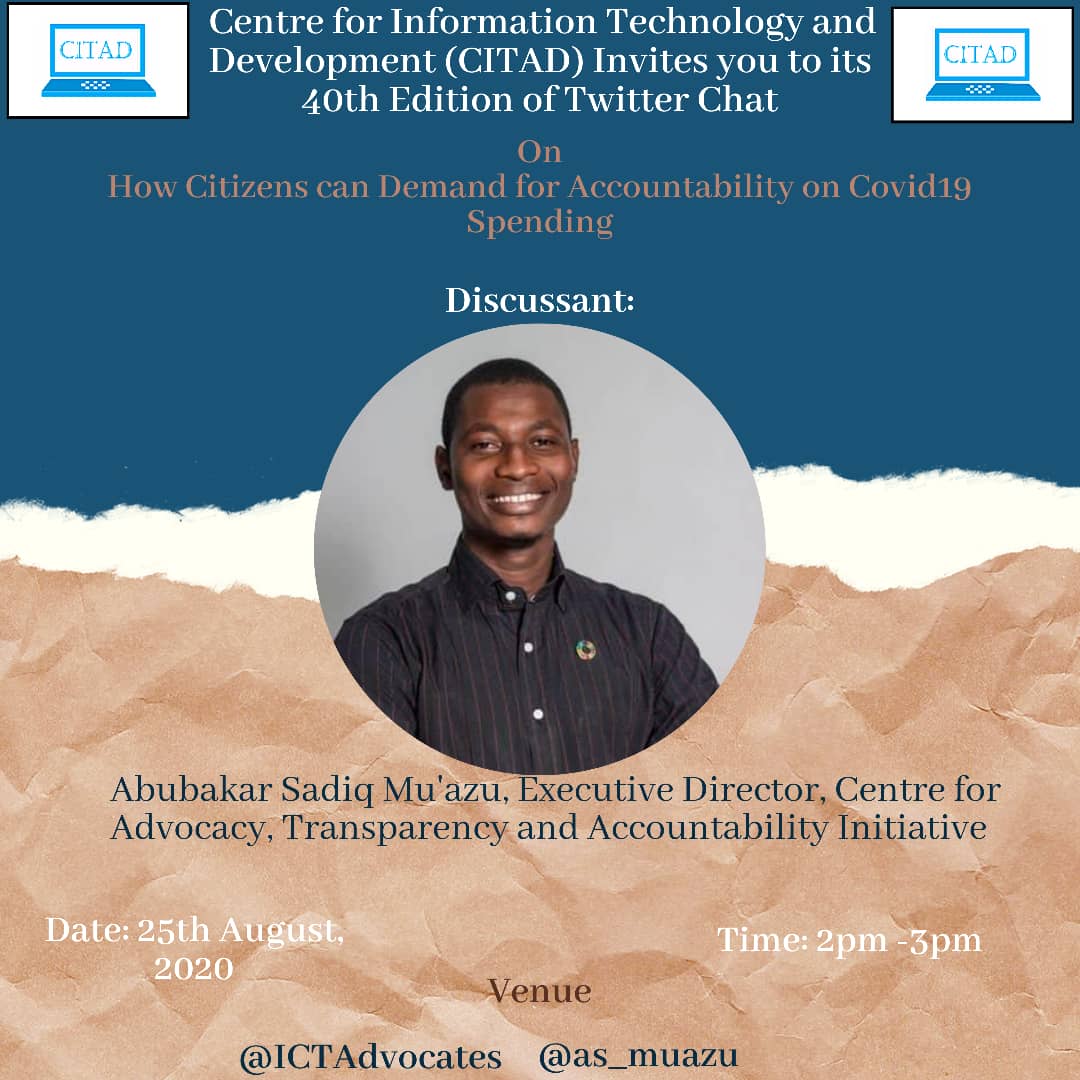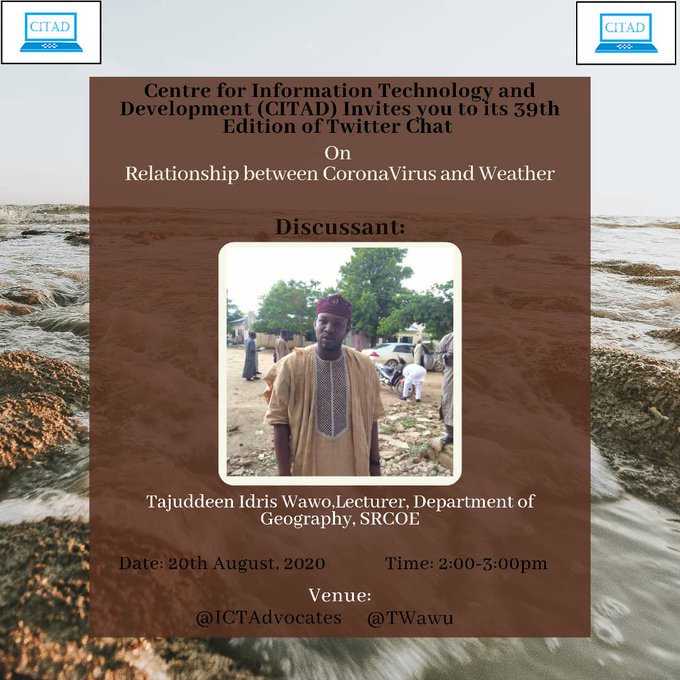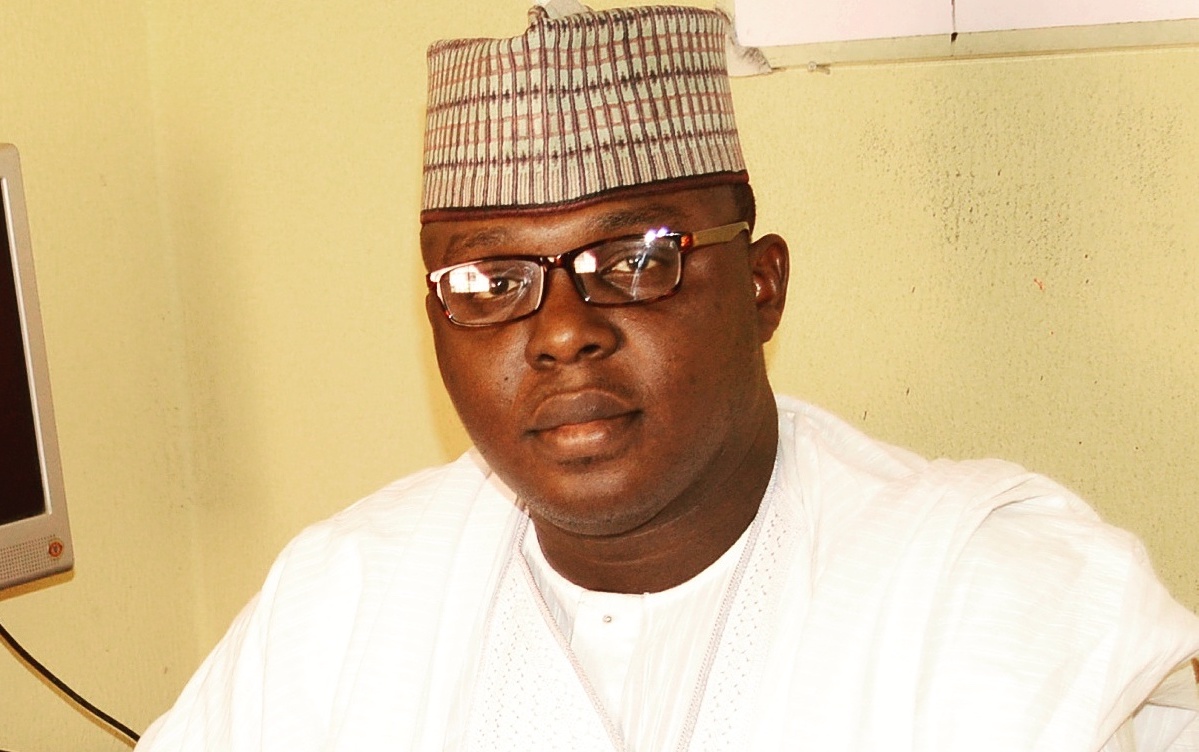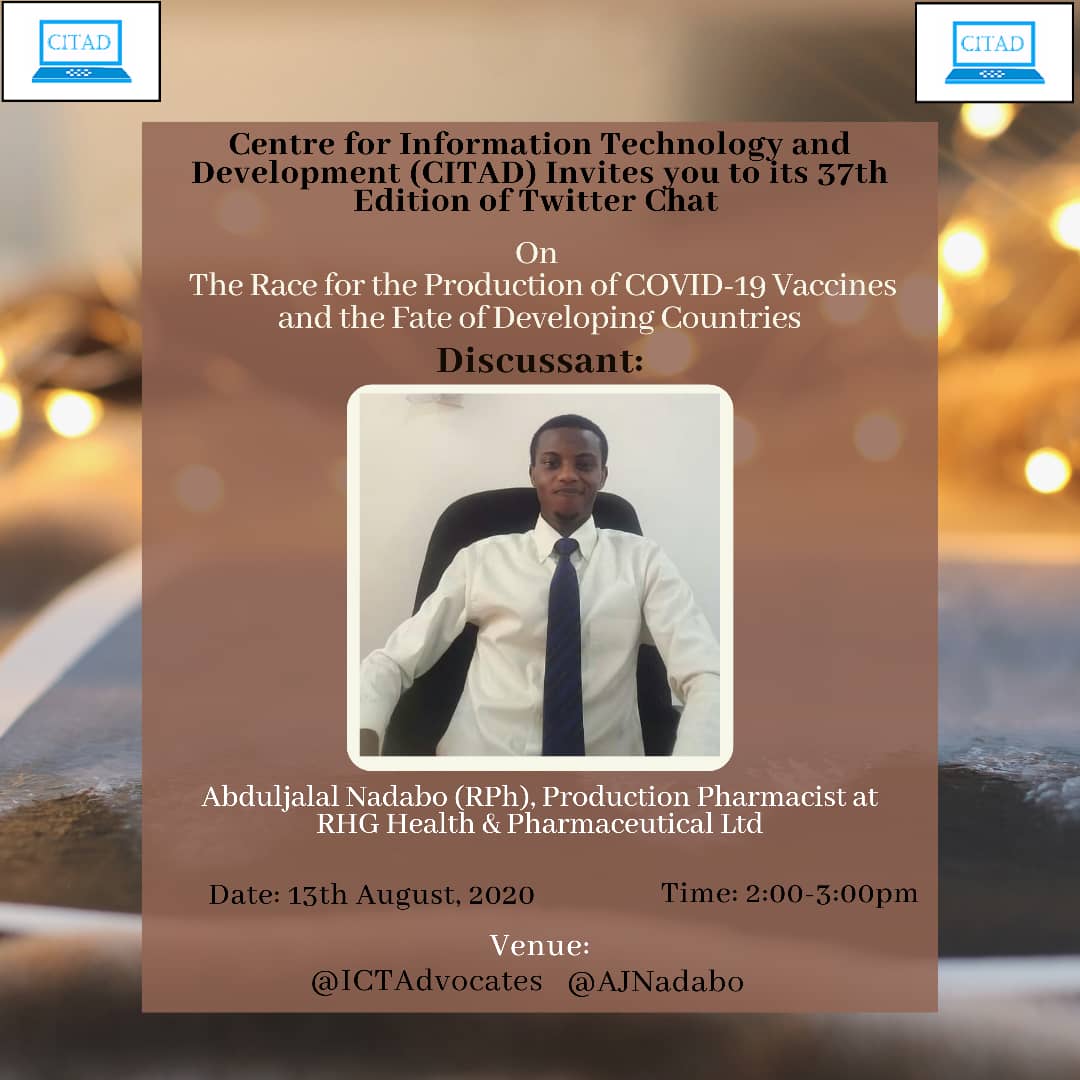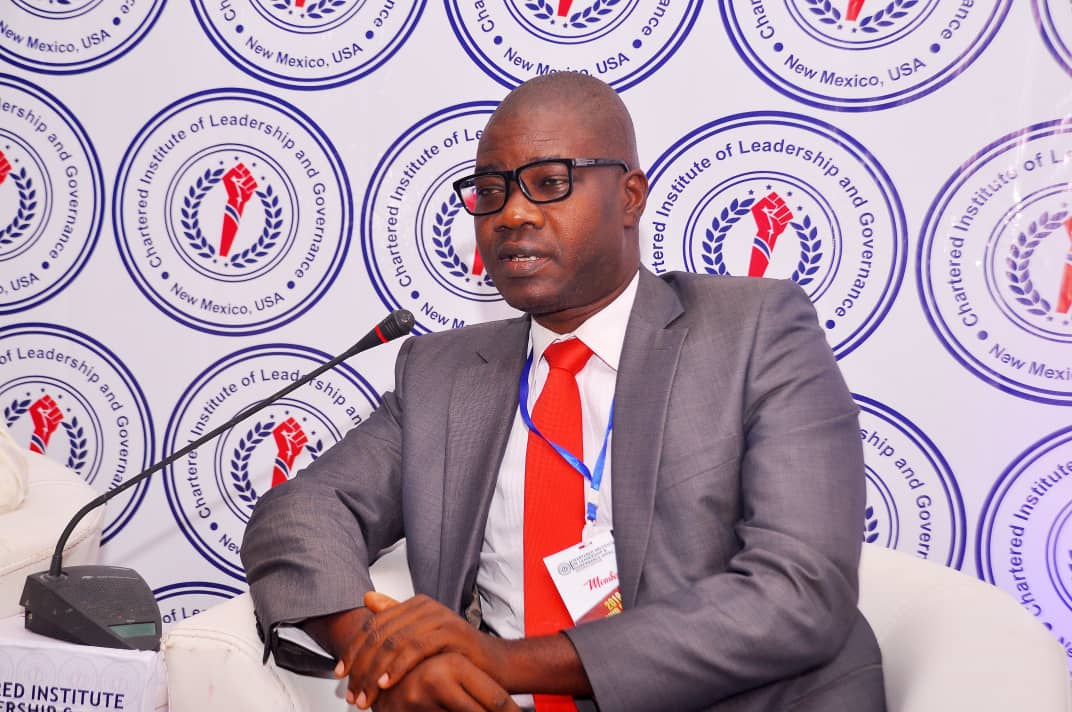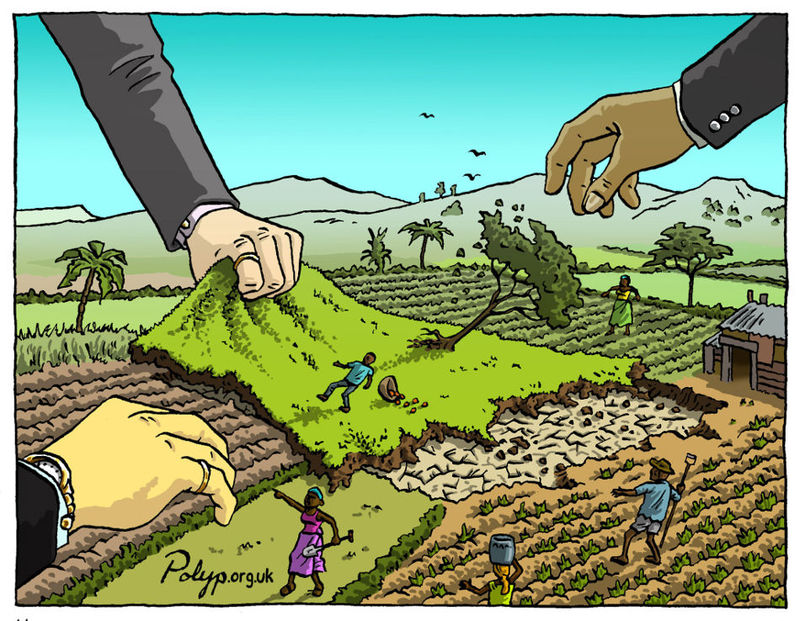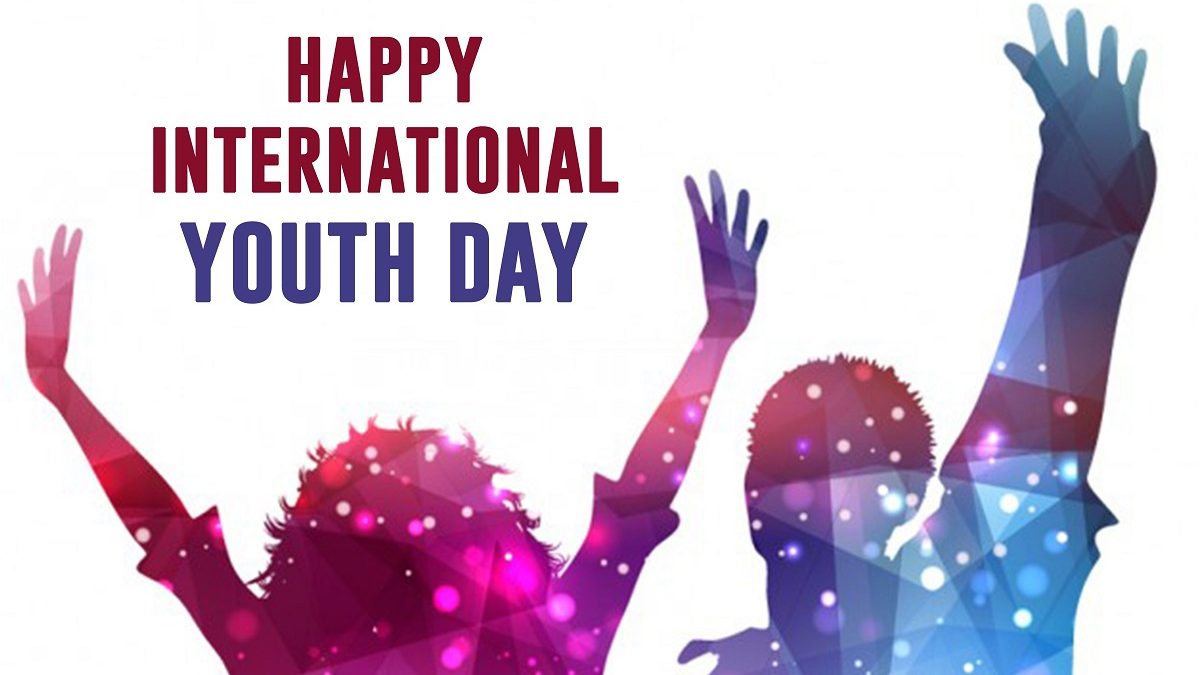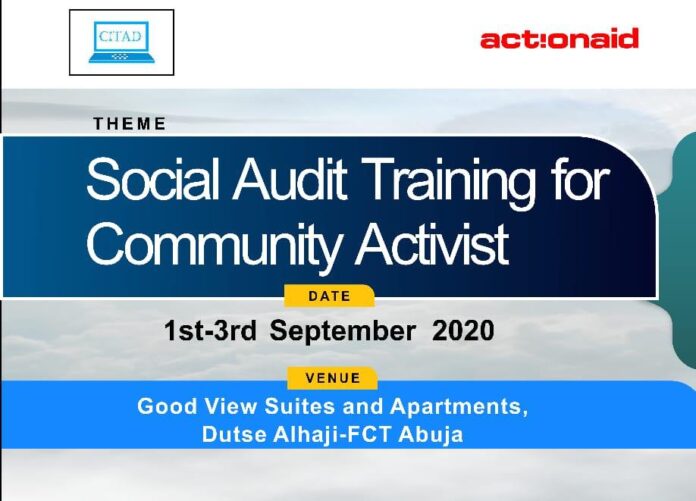
Transparency, Accountability: Actionaid Nigeria, CITAD Train 48 Activists In Abuja Communities On Social Audit To Engage Implementing Agencies
Actionaid Nigeria in partnership with the Centre for Information and Communication Technology (CITAD), have organised  a 3-day training on Social Audit for 48 activists and facilitators from 18 hard-to-reach communities in Abuja, Nigeria’s Federal Capital Territory.
The training aimed at building capacity of participants to engage implementing agencies for transparency and accountability.
Actionaid is an international  non-profit governmental organization that works with communities to reduce poverty, promote human rights and justice worldwide.
The Centre for Information Technology and Development (CITAD) on the other hand, is committed to the use of information and communication technologies (ICTs) for development and promotion of good governance.
The Country Director of Actionaid Nigeria, Ene Obi said  the  Social Audit Training of Trainers held at Dutse-Alhaji in Bwari Area Council  was predicated on the believe in the power of one person standing right and doing the right thing- starting a change from an environment.
She said that Nigeria is at its present level  because many politicians managing the affairs of  the country have no sanity.
Obi who stated this  on Tuesday while declaring open the 3-day training  said our leaders take the centre stage at every point in time but at the end of their rule,  bequeath no positive change to the country.
Blaming the present predicaments of the country to the failure of our leaders,  she regretted that despite the volume of its  young which are great potential  for development, Nigeria is still at a standstill after many decades.
“Many of our politicians have no sanity. There is a lot of insanity in the environment. If  you don’t leave the stage better than you met it then you are a failure.
“So what we are having is a colossal failure of many leaders.  We have maternal mortality rate like no other time, violence  everywhere, violence against women and girls,  so many people are idle due to unemployment. But we will continue to work hard,” Obi said.
While congratulating the participants for being part of the training, she admonished them not  to give up but stand against bad when it is bad. “Lets work together,  network together, exchange ideas and stand for what is right at all times because that is what will change the future,” she said.
The Actionaid Nigeria Country Director also congratulated the Centre  for Information and Communication Technology( CITAD)for the training.
The training had 48 activists and facilitators from  18 communities in four area councils of the Federal Capital Territory where the organization with support from CITAD is offering interventions.
They include among others:Leleyi Gwari, Leleyi Bassa, Kilankwa,  Pai in  Kwali area counci, Tunga-Ashere, Jiwa, Dakwa, Tunga-Nasara,AMAC, Gaube, Kayache, Tukpechi, Bwari-Pasepa,  Guto, Igu, Kuchibuyi  in Bwari area council.
In an interview with journalists, the Social Mobilization  Manager for Actionaid Nigeria, Adewale Adeduntan said the training was to conscientize community members and facilitators on how to apply social audit as an approach to engender good governance, accountability and transparency in terms of the relationship between the lead and the leaders.
He said:”We realize that people in public offices take the citizens for granted a lot. They act arrogantly as if they are doing community people favour. Remembering that the resources they use is our common wealth, they should be used judiciously in such a way that the people can benefit.
“We are  therefore, trying to create an approach whereby we can interact with our leaders interms of the projects and intervention they bring to the communities.”
He said the organizations wanted to create a situation where the people could engage their leaders constructively, ask questions about the project cost, specification to ensure they don’t just dump projects  on the people but execute them according to specifications as this will bring about a new order and good governance in Nigeria.
“The engagement is not going to be an individual thing. The participants will be working on a platform which we call social audit committee which will be formed in the course of the training on Wednesday. They will be officially introduced to the government so that they can now begin to take their decision forward with the government from there,”he explained further.
Adeduntan noted that  at the community level,  local governance is suffering in Nigeria, adding that development should be demand-driven.
“It is the people  that should  demand what they need you to do for them. But  here in Nigeria, people just campaign and say when I  become chairman, I will do this for you. If this is reversed and we have a community assembly where people come together and  say what they need and submit their charter to the government and say this is what we want, the spate of abandoned projects will be reduced.
“It is a natural model that if you are doing things for the people, they should be aware. So confidently, people’s involvement or participation will  accelerate development in Nigeria,” said the Social Mobilization Manager.
Earlier while delivering a presentation  on “Understanding Social Audit and its Importance” Adeduntan explained that Social Audit is a process to establish accountability which empowers the community to ask questions and demand answers from the implementing agencies.
“It is done by the community or beneficiary group. It is an audit of the implementing agency that examines physical, financial and  process-related issues. Both quantitative and qualitative inputs are publicly verified,” he explained further.
Actionaid Nigeria’s  Local Rights Programme Advisor, Hajara Opaluwa-Adamu said also while responding to questions from journalists that the workshop is a social accountability  capacity building  aimed at  training the community people on how to access government intervention in their communities.
“We are trying to see how this facilitators will be able to audit any firm that comes to their communities and hold their representatives accountable to the community. Political office holders are supposed to serve us, so whatever they do is not a favour but their rights, so we are trying to build their rights consciousness so they don’t look at it like its a previlege but their right. What we want to achieve more or less is to have social auditors in the communities,” she explained.
Speaking in the same vein, CITAD Program Officer, Salma Abdulwaheed explained that the training aimed at educating  the community people about social audit- how to seek accountability and transparency in government project in their respective communities.
She said the training became necessary because “we noticed that much is not being done in communities in the FCT like basic infrastructure. There are budgets for constituency projects  but where are those constituency projects?. The  training will help the community activists to  track those project, the progress and where these projects are implemented.”
The programme officer said after the training,  participants  are expected to return to their respective communities to do a  step down training for others in their respective communities “so that we can begin to see changes in constituency projects in their communities.”
“Our expectation is that participants will do a step down training for others in their communities to get other members of their communities to join them in the advocasy. After this they will engage their community leaders to join in the campaign and with their supports, they will be able to engage any politician and demand for accountability and transparency,” Abdulwaheed said.
Participants who were also interviewed at the training by journaliats were greatly delighted to participate in the training.
One of them, Ishaya Gbashe from Kilankwa 11 Community, Kwali Area Council, says he feels so excited about the training because before now  he couldn’t differentiate between financial audit and social audit.
However, with the training, he says he now understand that he has a right to demand for  details of projects being executed by implementing agencies and the government in his community.
The training has opened our eyes to understand that it is very crucial for us to approach our councillors and local
government chairman politely and demand for project documents, budget documents on constituency projects and make enquiries to ensure that intervention deployed is according to specifications.
He  said in due course, he will form a group to engage implementing agencies and government Representatives executing projects in his community.
A female participant, Jamila Inusa from Guto community in Bwari Area Council, said the training has made her knowledgeable about the subject, adding, she can confidently pass on the knowledge acquired to other members of her community.
“The training  has benefited me very much because I now  know what what I didn’t know before,  that I have the right to ask questions about projects in my community. I know how to face my local government chairman or councillor to question them about what they are doing and what they are not doing for our community,” said Inusa.
The training which  continues on Wednesday with other interesting activities, will be concluded on Thursday.







